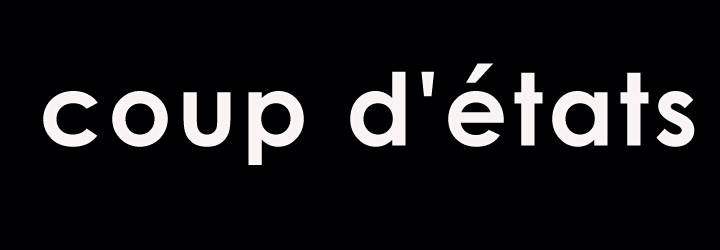The causes of coups in Africa are multi-faceted and can vary from country to country. However, some common underlying factors can be identified:
Political Instability: Many African countries experience chronic political instability, characterized by weak democratic institutions, an absence of checks and balances, and a history of authoritarian rule. This creates an environment where power struggles and coups become more likely.
Corruption and Mismanagement: Widespread corruption, economic mismanagement, and unequal distribution of resources contribute to public frustration and dissatisfaction. When governments fail to address these issues, it can lead to protests, social unrest, and potential coups.
Ethnic and Tribal Tensions: Africa is a diverse continent with various ethnic and tribal groups. When these divisions are exploited by political leaders or result in discriminatory policies, it can heighten tensions and create conditions for coups.
Socioeconomic Factors: High levels of poverty, unemployment, and inequality can contribute to social unrest and dissatisfaction with the government. These grievances can be exploited by military personnel or other groups seeking to seize power.
Addressing coup d'états in Africa requires a combination of short-term and long-term measures:
Strengthen Democratic Institutions: Building strong democratic institutions, including an independent judiciary, free press, and accountable governance, is crucial. This can be achieved through constitutional reforms, electoral reforms, and capacity building for civil society organizations.
Promote Good Governance and Fight Corruption: Tackling corruption and ensuring accountability are vital in preventing coups. African governments should prioritize anti-corruption measures, enforce existing laws, and promote transparency in public institutions.
Economic Development: Creating inclusive economic growth and reducing income inequalities can address socioeconomic grievances. Governments should implement effective policies to reduce poverty, create jobs, and provide opportunities for all citizens.
Conflict Prevention and Resolution: Addressing ethnic and tribal tensions through dialogue, mediation, and inclusive governance can help mitigate the conditions that fuel coups. Regional organizations, such as the African Union, should play an active role in conflict prevention and resolution.
International Support: The international community can support African countries by providing financial assistance, technical expertise, and training to strengthen democratic institutions, promote good governance, and encourage economic development.
It is important to note that every country's situation is unique, and tailor-made solutions should be designed to address specific challenges.
Desmond John Beddy
https://beddy.de
Sidebar
Magazine menu

 Teline V
Best News Template For Joomla
Teline V
Best News Template For Joomla
27
Sat, Jul
21
New Articles










